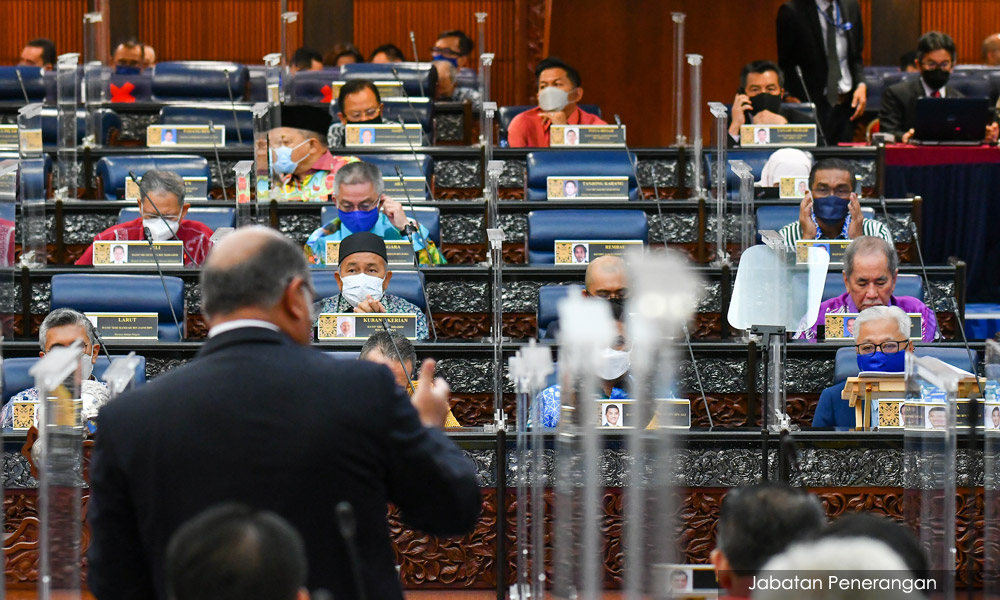COMMENT | An overwhelming majority wants the culture of party hopping of elected representatives to be made unlawful or at the very least to put a penalty on those who betrayed the voters who voted for them.
This was among the top agenda of the government after signing an MOU with the oppositions parties last September.
There should be no issue in getting the laws approved since all political parties agree to it.
However, as the saying goes, the devil is in the details.
For the last few weeks, the discussion about the anti-hopping law has intensified and reached a crescendo at the Dewan Rakyat yesterday (April 11).
The outcome of yesterday's meeting was to refine the definition in the draft bill and to also prepare the enabling anti-party hopping law and table it concurrently.
As a member of the Upper House, I am eager to air my views on this since I am an advocate for such laws.
However, that opportunity did not present itself today as a special senate meeting to debate on the Constitution (Amendment )(No 3) Bill 2022 was cancelled at the last moment.
In fact, I was in the midst of boarding a flight to KL yesterday when the message came in to say the special sitting was cancelled.

Rare occasion
Nonetheless, I am proud to see how the legislative arm works in formulating the laws on anti-party hopping.
This is one of the rare occasions where the legislative arm is actively involved and in control of the deliberation and drafting of the laws. These are the main duties of MPs.
This has resulted in the Constitution (Amendment) (No 3) Bill 2022 being retracted from being tabled and voted on yesterday in Dewan Rakyat and today in Dewan Negara in order to further refine it.
In addition, as a result of the debate, it was agreed that the anti-party hopping law will be prepared and tabled at the same time as the constitutional amendment.
Some people have taken sceptical, and even cynical views, on all the going-on surrounding the process and culminating in the laws being presented for the legislative arm to approve.
There was much through and forth between the government and opposition and even within the cabinet and the parties within the government on the law should be like culminating in the debate in Dewan Rakyat yesterday.
This is exactly how the Parliament should work. The Parliament is not a rubber stamp of the executive.
This time the legislators are actively involved in drafting the laws on anti-hopping. This is the beauty of a dynamic, deliberative and competitive system of parliamentary democracy.
However, this rarely happens. Most of the time decisions are made with little input from legislators.
In a supermajority Parliament, the party whip will ensure that all government bills be passed with little or no chance of change from the legislative arm.
If the outcome of the process is gridlock with nothing to show or a compromised version of the bill that is ineffective and does not live up to the people’s expectation of the original intention, then peoples’ faith in the system (parliamentary democracy) will be diminished.
I hope the Parliament can continue to live up to the purpose and expectation, as seen in the formulating and debate on the anti-party hopping laws.
ROBERT LAU HUI YEW is a member of the Dewan Negara and Sarawak United People's Party assistant treasurer.
The views expressed here are those of the author/contributor and do not necessarily represent the views of Malaysiakini.

